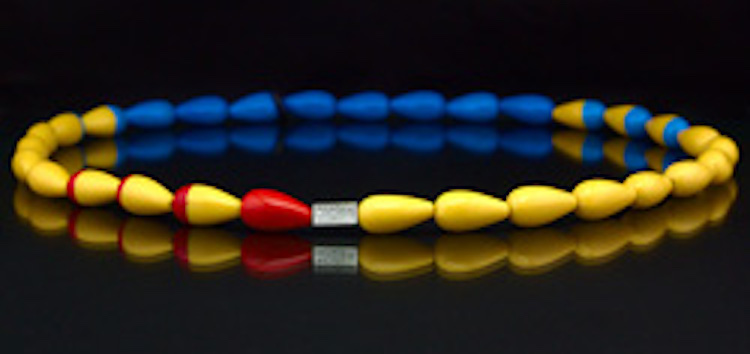By Julia Zimmerman*
This is the fifth in a series of reports on the Vienna UN Conference from January 10-12, 2018, which discussed actions and challenges linked to the Sustainable Development Goal 5 (SDG 5) and in the spirit of SDG 17. The Vienna Liaison Office of the Academic Council on the United Nations System (ACUNS) organized this Conference co-ordinated by Heather Wokusch. – The Editor
VIENNA (IDN) – Of the numerous and significant challenges currently facing women and girls globally, access to sexual and reproductive rights is high on the list. Experts in the field of women’s sexual and reproductive health are trying to assure access and to spread knowledge about harmful practices.
It is these champions of gender equality who are insisting on equal access to these fundamental rights, but it is not an easy battle. Resistance from conservative administrations, established social norms, and harmful traditions embedded in cultural practices stand in the way of achieving this goal.
Experts such as Etenish Hadis have dedicated their life’s work to the promotion of sexual and reproductive rights. Founder and President of the African Women’s Organization in Austria and a former diplomat of Ethiopia, Hadis has 28 years of experience combating female genital mutilation (FGM). She has committed her life to the cause of eliminating FGM, focusing on the 28 African countries affected by the practice. FGM, according to the World Health Organization (WHO), “includes procedures that intentionally alter or cause injury to the female genital organs for non-medical reasons.”
Hadis is also adamant about dispelling the misconception that FGM is present only in Muslim societies. She underlines that it has nothing to do with religion, but rather is a harmful tradition. In her work, she also emphasizes the importance of poverty reduction and job creation as key factors in reducing FGM and violence against women. According to Hadis, “There are traditions that should be retained, but FGM, which is weakening women’s rights and women’s health, we must fight and we must eradicate.”
International consultant Mamadou Kone is also an expert in the field of FGM and women’s health. Based in Austria, he coordinates activities in Mali for the NGO Aktion Regen, an organization focused on sexual health and family planning as well as FGM. Kone emphasizes the value of using tools to empower women with regards to their sexual and reproductive health. Using models of female genitals in different conditions, Kone and other “Rainworkers” trained by Aktion Regen, host workshops that educate participants about the dangers of FGM.
Kone uses another device called a “baby necklace” to help women and girls track their reproductive cycles, empowering them to take the necessary precautions if they wish to avoid pregnancy. The users move a small loop along the beads of the necklace daily, marking where they are at in their cycles. It is an analog form of some of the popular Apps used today for the same purpose.
Regarding sustainable development in general, Kone believes that, “We cannot at all think of development–when we refer to Africa, mainly in Mali – without taking into constant consideration how important women are to the development of the country.”
Dr. Barbara Maier offers the perspective of a women’s health specialist in Europe. She is the President of the Austrian Society for Family Planning (ÖGF) and Head of Gynecology and Obstetrics at the Wilhelminen Hospital in Vienna. The ÖGF works to serve women in Austria by providing basic health services, help desks for youth, family planning for adults, workshops and counseling, and other services without charge.
Dr. Maier is familiar with the challenges still facing women in Europe, such as barriers to women’s access to contraception and abortion. In Austria, for example, while abortion is not officially legal, it is permitted just until the 14th week of gestation. Only in certain cases is abortion not penalized after that. In addition, abortion is not covered by health insurance. Some see these factors as significant obstacles to women’s freedom of choice and control over their bodies.
According to Dr. Maier, potential difficulties also lie ahead after the recent election of a conservative government in Austria. In fighting for sexual and reproductive rights, she insists that, “The private is political, the political is economical, and there is a vicious circle. We have to break this vicious circle.”
Moving forward, these experts see a path to empowering women with regard to their sexual and reproductive health through education, economic support, access to opportunities, supportive images in the media, and attitudes that promote change. Mr. Kone also underlines the importance of engaging religious leaders and other important societal elites who can support the message of eliminating FGM.
Most importantly, although Europe and Africa may face different obstacles, access to sexual and reproductive rights is not an issue restricted to one region of the world – it is a global challenge.
 *A graduate student at Webster Vienna Private University, Julia Zimmerman is writing her Master’s Thesis on how foreign military intervention impacts sexual violence towards women during conflict. She recently interned with the NGO CARE on a project working to end child marriage in Bangladesh and Nepal. She is passionate about combating gender-based violence globally. [IDN-InDepthNews – 31 January 2018]
*A graduate student at Webster Vienna Private University, Julia Zimmerman is writing her Master’s Thesis on how foreign military intervention impacts sexual violence towards women during conflict. She recently interned with the NGO CARE on a project working to end child marriage in Bangladesh and Nepal. She is passionate about combating gender-based violence globally. [IDN-InDepthNews – 31 January 2018]
Image: The Birth Control Necklace consists of 30 drop-shaped beads (average length of a woman’s monthly cycle), whereby each bead represents one day in a woman’s monthly menstrual cycle. Credit: Aktion Regen
IDN is the flagship agency of the International Press Syndicate.
Facebook.com/IDN.GoingDeeper – twitter.com/InDepthNews

